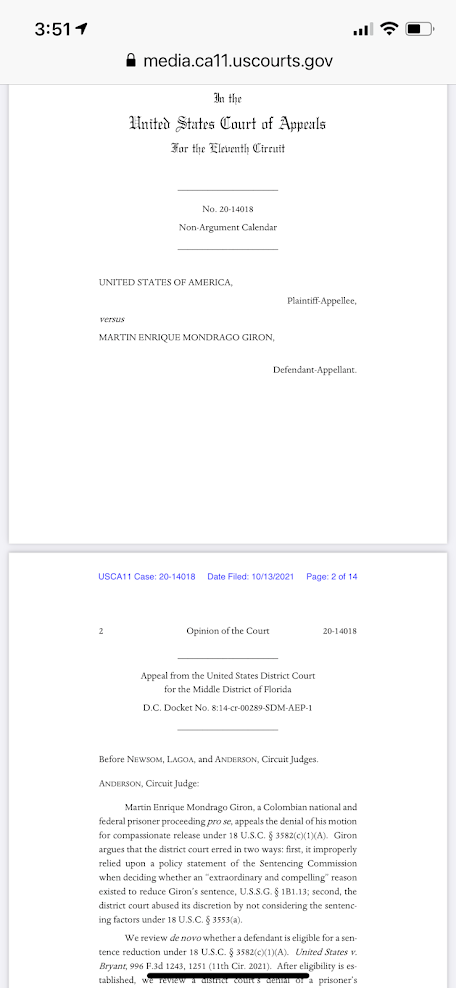One of the country's most thoughtful sentencing judges, Jed Rakoff, had the case. From the NY Times:
Prosecutors had argued for a sentence below guidelines of 46 to 57 months, but did not specify exactly how much lower. In court papers this month, prosecutors said that although Dr. Bagley’s age and health should be taken into consideration, some incarceration was necessary to serve as a deterrent.
In court on Tuesday, Judge Rakoff said that a sentence of up to five years, as recommended by federal guidelines, would be “irrational” and “overly punitive,” according to The A.P. But like prosecutors, the judge said some incarceration was needed. The judge recommended that Dr. Bagley’s sentence be served in a medical facility, according to a Justice Department spokesman.
According to prosecutors, Dr. Bagley opened a bank account in Florida under his company’s name, Bagley Consultants, in 2016. But there was hardly any activity in the account until a year later, when he started receiving large deposits from bank accounts in the United Arab Emirates and in Switzerland.
Those accounts ostensibly belonged to a food company and a wealth management firm but were actually controlled by a Colombian national whose money came from “the proceeds of foreign bribery and embezzlement stolen from the Venezuelan people,” according to an indictment.
Dr. Bagley knew the source of the money and entered into “multiple sham contracts” in order to conceal it, according to the indictment.
After each deposit, Dr. Bagley would go to his bank and get a cashier’s check for about 90 percent of the money, which he would then give to another individual, and wire the rest to his personal bank account, the indictment said.
In October 2018, the bank closed the company’s account because of suspicious activity, according to the indictment. But Dr. Bagley opened another account in his name that December and continued the scheme until April 2019, receiving at least 14 illegal deposits, prosecutors say.
Though Dr. Bagley lives in Florida and the laundered funds were sent to Florida banks, prosecutors said they were prosecuting the case in Manhattan because the money passed through New York City as it came from abroad.
Law360 also covered the case, and included this awesome statement by Judge Rakoff:
Prosecutors asked for prison time below Bagley's non-binding federal guidelines range of 46–57 months, while the defense had asked for time served, citing the 75-year-old's age, pulmonary nodules, diabetes and hypertension in a heavily redacted sentencing submission.
The judge said prison was warranted to send a message of deterrence, but also acknowledged Bagley's health problems as he quipped that "some might describe" the Federal Bureau of Prisons' repeated assurances that it can handle any medical issue as "a repeated fraud on the court."













